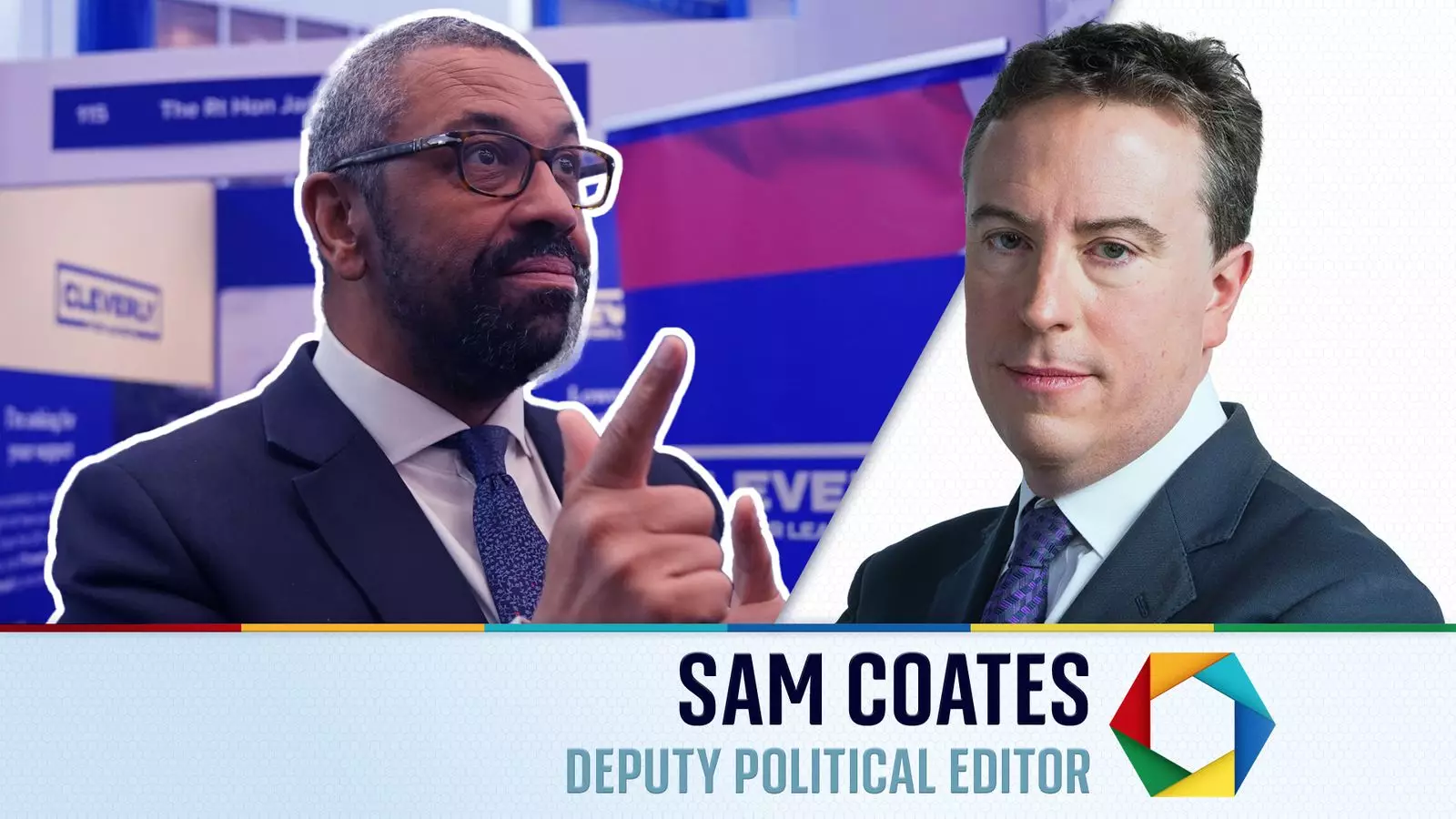The Tory leadership contest is heating up, with several candidates vying for the top position within the party. As campaigning intensifies, certain candidates are beginning to solidify their standing among party members. James Cleverly has notably gained significant momentum, presenting a confident front with a memorable conference speech aimed at revitalizing party spirit. However, despite his lead, the path to victory remains uncertain. The following analysis delves into the implications of recent events, candidate strategies, and member priorities that shape this contest.
James Cleverly: The Front-Runner
James Cleverly’s ascent in the leadership race can be attributed to his engaging conference address, which resonated well with party members seeking reassurance and optimism. Cleverly has effectively cultivated an image that blends approachability with confidence, crucial traits as the party seeks a leader capable of uniting its base. His strong performance at the conference has earned him the top position, yet this lead is tenuous. Cleverly must navigate the upcoming rounds of the contest as other candidates aim to outperform him. While his advantage is palpable, it has sparked questions about his strategy. Will he attempt to position Robert Jenrick as his opponent for the final showdown? Cleverly must remain vigilant, for the competition remains fierce, with both Kemi Badenoch and Jenrick keen on clinching the second spot.
Kemi Badenoch’s campaign strategy is decidedly more focused on appealing to the party’s right, signifying a distinct departure from the traditional one-nation approach favored by some factions within the Tory party. Her recent declaration for the party’s right to rally around her candidacy illustrates her commitment to courting support from specific conservative factions, even as she faces challenges in the polls. Badenoch’s assertive appeal is especially noteworthy, as it may alienate more centrist supporters who constitute a significant portion of the party base. Despite failing to achieve anticipated levels of support in earlier rounds, her determination to consolidate the conservative right leaves her poised for a tactical alteration, should the winds change in her favor.
In stark contrast, Robert Jenrick appears to be experiencing a decline in momentum. Recent polling suggests that he has lost significant votes, leading his supporters to express disappointment in his performance. His recent conference speech, intended to rally support, did not resonate as expected, indicating that the impact of his messaging may not have aligned with the desires of the party’s electorate. The possibility of consolidating votes with Badenoch looms large, but as he navigates this setback, Jenrick must reassess his approach. The challenge lies not only in re-establishing his appeal but also in recognizing the shifting dynamics within the party and adapting accordingly.
As the candidates battle it out for voter approval, the priorities of Tory members are becoming increasingly clear. Recent polling data reveal a preference for leadership attributes such as integrity and conservatism, with winning elections taking a backseat. This insight poses significant implications for the candidates—Cleverly, Badenoch, and Jenrick must align their campaigns with these values to secure support. The stark preference for integrity signals to candidates that superficial popularity will not suffice; rather, authenticity and alignment with party values will be vital.
The Tory leadership contest is marked by heightened tension and strategic maneuvering as candidates attempt to galvanize support. Although James Cleverly currently leads the race, underlying tensions among contenders and evolving voter preferences create a complex electoral landscape. As the next rounds approach, Cleverly, Badenoch, and Jenrick must critically assess their standing and recalibrate their strategies accordingly to emerge victorious. The road ahead holds uncertainties, but the significance of integrity and authenticity in leadership cannot be overstated, shaping not only the outcome of this contest but also the future of the Conservative Party at large. The dynamics of this contest illustrate the intricate interplay of individual ambitions and collective party identity, making the coming days crucial for all involved.


Leave a Reply